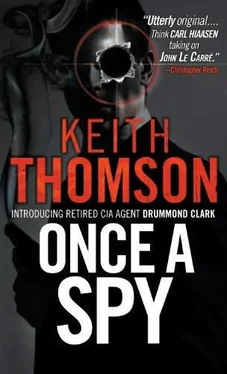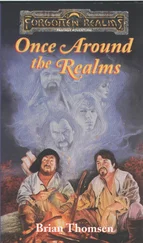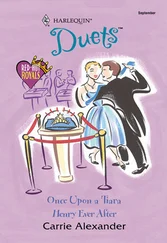Keith Thomson - Once a spy
Здесь есть возможность читать онлайн «Keith Thomson - Once a spy» весь текст электронной книги совершенно бесплатно (целиком полную версию без сокращений). В некоторых случаях можно слушать аудио, скачать через торрент в формате fb2 и присутствует краткое содержание. Жанр: Шпионский детектив, на английском языке. Описание произведения, (предисловие) а так же отзывы посетителей доступны на портале библиотеки ЛибКат.
- Название:Once a spy
- Автор:
- Жанр:
- Год:неизвестен
- ISBN:нет данных
- Рейтинг книги:5 / 5. Голосов: 1
-
Избранное:Добавить в избранное
- Отзывы:
-
Ваша оценка:
- 100
- 1
- 2
- 3
- 4
- 5
Once a spy: краткое содержание, описание и аннотация
Предлагаем к чтению аннотацию, описание, краткое содержание или предисловие (зависит от того, что написал сам автор книги «Once a spy»). Если вы не нашли необходимую информацию о книге — напишите в комментариях, мы постараемся отыскать её.
Once a spy — читать онлайн бесплатно полную книгу (весь текст) целиком
Ниже представлен текст книги, разбитый по страницам. Система сохранения места последней прочитанной страницы, позволяет с удобством читать онлайн бесплатно книгу «Once a spy», без необходимости каждый раз заново искать на чём Вы остановились. Поставьте закладку, и сможете в любой момент перейти на страницу, на которой закончили чтение.
Интервал:
Закладка:
Scrambling into the passenger seat, he said, “Charles, we have to go, remember?”
Charlie shook off his astonishment-he could do nothing about his fright-and hurried into the driver’s seat.
He shot the Buick down the alley, and, at the far end, turned out onto the street just as the police cruiser bounded into the strip mall parking lot. Again, he only heard the cruiser.
Driving away, he said to Drummond, “I’m impressed that you didn’t have to change your underwear every time you changed cars.”
4
“For now, the flooding appears to be under control-”
Charlie switched off the car radio. A water main break in Canarsie was the night’s biggest news. No cabdriver murder story, no mention of the flight of the Clarks, nothing about traffic delays due to police blockades.
Nor was there sign of such blockades. The practically vacant Williamsburg Bridge stood just a block down Driggs Avenue. On the other side blazed Manhattan in all of its immensity and raucousness-a sanctuary, in Charlie’s mind. Still his eyes bounced from mirror to mirror. The rest of him was as tense as rigor mortis in anticipation of police cars or, worse, a teal car.
Slouched in the passenger seat, Drummond registered little response to the radio or much else. His eyelids appeared weighted down.
Suddenly he cried out, “Bridge!” as if warning of an incoming missile. He plunged off the seat and bunched himself up on the rubber mat in the footwell.
It was too late for Charlie to turn back. To brake meant a certain rear-ending. The best he could do was slow the Buick. “What about it?”
Drummond looked over as if through thick fog. “They’ll see us.”
“Who?”
“I don’t…” Drummond’s voice fell off.
Charlie studied the steep on-ramp. A Volkswagen Beetle skipped across the threshold. At the ramp’s peak, a stripe of light swept over a wrecker as it thumped onto the bridge’s main span. Charlie’s eyes jumped to the source of the light, the steel box mounted on the gantry above the span. The box contained a camera intended to photograph vehicles that sped or jumped red lights. Traffic cams had been blooming on gantries all over town recently. The photos were processed later-often months later-by the Department of Transportation. In cases of clear infractions, where both the license plate and the driver’s face were captured, summonses were issued by mail.
“Please don’t tell me that they-whoever they are-can tap into traffic cams,” Charlie said.
“Maybe you should wear this.” Drummond offered up the soiled New York Yankees cap that had been wedged into a pocket on the passenger door.
Charlie pulled on the cap. The bill draped his face in shadows. The cap itself compressed his pile of hair. A devout Mets fan, he’d always maintained he wouldn’t be caught dead in anything with a Yankees logo. He never imagined he actually would have to make the choice.
The drive across the bridge and into lower Manhattan was uneventful-as far, Charlie reflected, as he knew. From Houston Street, he turned the Buick onto quiet Ludlow, intent on the quaint Italianate brownstone halfway down the block.
It was a few minutes to one. Lenore, who tended bar at the Four Leaf Clover, a horseplayer watering hole in Hell’s Kitchen, ought to be home now, hopefully alone. He’d been to her apartment three nights ago. The visit lasted only as long as the nightcap that occasioned it. He left without much sense of whether he wanted to call her or whether she had any interest in hearing from him. They hadn’t spoken since. So his showing up now and asking to stay the night would strike her as peculiar, to say the least. That he’d brought along his father would be off the charts. On the flip side, who would think to look for him there?
There was little activity on her block. The bodega on the near corner had no business. A middle-aged Asian man sat outside in the tent that protected the fruit and cut flowers from the elements. The portrait of boredom, he dipped a soup spoon into a small bowl. There was some movement on the other side of the blinds of the chess club on the second story. Farther down the sidewalk, a shopping cart lady had parked her cart and slept on a stoop by a heating grate. Otherwise the residential block was dormant.
Still, as Charlie drove onto it, his pulse doubled. Probably due to exhaustion, he thought. Also his blood sugar was on Empty.
No, it was the soup.
Like they say at the track, believe nothing that you hear and half of what you see. He shouldn’t have been able to see the boredom on the man’s face at all. There ought to have been vapor in the way, rising from the bowl. Hell, a night this cold, there ought to be a shaft of steam. Maybe Smith or MacKenzie or whoever learned about Lenore from one of the horseplayers at the Four Leaf Clover: Most of them would sell their mothers for the price of a two-buck ticket.
Or maybe the poor bodega guy’s soup simply had gotten cold.
Drummond slept in the footwell. He might have a sense of whether the bodega man was something other than he appeared. But rousing Drummond risked drawing the man’s attention, and more than likely Drummond would not have a sense. So Charlie simply drove past, watching the bodega in the rearview mirror.
The man shifted his position. He was watching the Buick.
But did that necessarily mean he was up to no good? What else did he have to do? He was bored-so bored, he probably had nodded off, allowing his soup to cool.
There was an empty parking space by Lenore’s building. Charlie tapped the brake pedal.
The red taillights set aglow a circle, the size of a quarter, at the end of something the bodega man held to his right eye.
He was watching through some sort of night scope!
Shock nearly turned Charlie to stone. He fought an impulse to heave his foot at the gas pedal; he maintained the car’s moderate pace. As he drove the remainder of the block, to his surprise, no bullets smashed into the Buick.
At the end of the block, he turned onto Delancey. The bodega man shifted his scope to the shopping cart lady.
While driving west on Delancey, Charlie felt regular sensation return to his body, but any sense of relief was negated by fear of what lay ahead, as well as uncertainty over which way “ahead” was. The fact that Smith, MacKenzie amp; Whoever knew about Lenore’s apartment turned Manhattan into an awfully tiny island.
And they were everywhere Charlie looked. Like the squeegee man on the corner. Didn’t the city get rid of squeegee men last century? Or the electric company repair crew on the other side of Delancey, a common enough sight anytime. But how about the broad-shouldered guy sitting idly by the pneumatic drill while his coworkers were neck-deep in the manhole? Wouldn’t he catch hell for gunning that monster in the middle of the night? Was it one disguise element too many?
Charlie turned uptown at the Bowery, only because he had no reason to, so theoretically there was no reason for anyone to suspect he would.
Hoping the ten minutes of rest made a difference, he roused Drummond. “Dad, I need some help,” he said.
“My pleasure,” Drummond said. In no way on the ball.
“Have you remembered, by any chance, who you work for?”
“Perriman Appliances-you know that.”
Perriman was a perpetually debt-ridden Argentine manufacturer of third-rate washing machines, dryers, and refrigerators. Its early-’70s venture into automotives, a sedan named the Chubut for the southern Argentine province that was home to the factory, was greeted with wild enthusiasm and national pride. But reports of poor quality control-some Chubuts left the line missing parts-resulted in the nickname Chupar (Spanish for “to suck”), total sales of just 366 cars, and debt that nearly suffocated the company.
Читать дальшеИнтервал:
Закладка:
Похожие книги на «Once a spy»
Представляем Вашему вниманию похожие книги на «Once a spy» списком для выбора. Мы отобрали схожую по названию и смыслу литературу в надежде предоставить читателям больше вариантов отыскать новые, интересные, ещё непрочитанные произведения.
Обсуждение, отзывы о книге «Once a spy» и просто собственные мнения читателей. Оставьте ваши комментарии, напишите, что Вы думаете о произведении, его смысле или главных героях. Укажите что конкретно понравилось, а что нет, и почему Вы так считаете.












